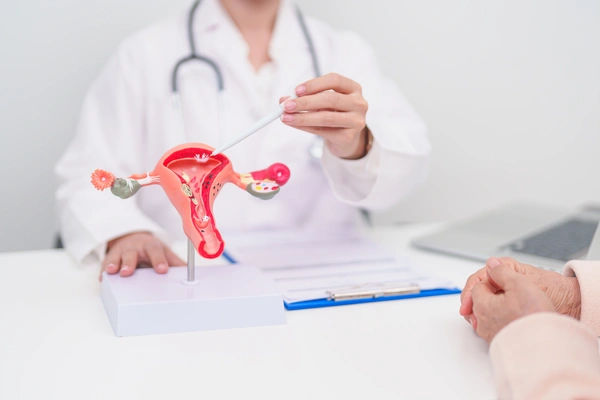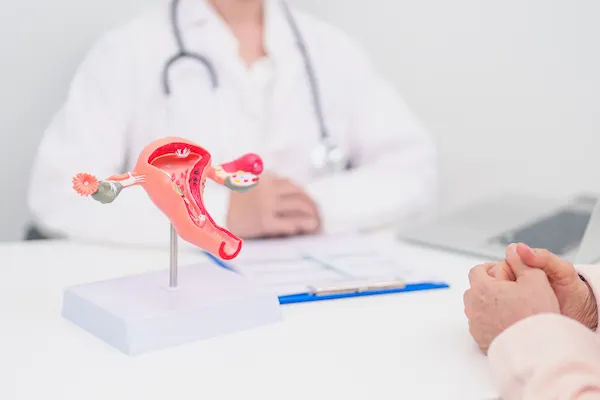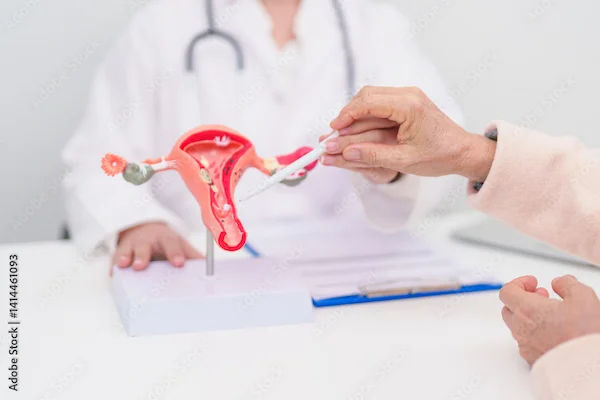Diet Considerations for PCOS Management
Know how the diet affects pcos, best foods & foods to avoid in pcos and lifestyle tips to follow in pcos and more.


Introduction
Polycystic Ovary Syndrome (PCOS) is a common hormonal disorder that affects many women of reproductive age. While PCOS can cause irregular periods, weight gain, acne, and fertility issues, the good news is that a healthy diet can play a crucial role in managing symptoms and improving overall well-being.
If you have PCOS, making mindful food choices can help regulate hormones, control blood sugar levels, and support weight management. Here’s a simple guide to understanding the best dietary approaches for PCOS.
How Does Diet Affect PCOS?
PCOS is often linked to insulin resistance, a condition where your body struggles to use insulin effectively. This leads to higher blood sugar levels and can worsen hormonal imbalances. A well-balanced diet helps:
- Improve insulin sensitivity
- Reduce inflammation
- Support healthy weight management
- Regulate menstrual cycles
Consult a Gynaecologist for Personalised Advice
Best Foods for PCOS
1. High-Fibre Foods
Fibre slows down digestion, helping to stabilise blood sugar levels. Include:
- Vegetables (broccoli, spinach, carrots)
- Fruits (berries, apples, pears)
- Whole grains (oats, quinoa, brown rice)
- Legumes (lentils, chickpeas, beans)
2. Lean Proteins
Protein keeps you full longer and helps maintain muscle mass. Opt for:
- Chicken, turkey, fish (especially fatty fish like salmon)
- Eggs
- Tofu and tempeh (plant-based options)
3. Healthy Fats
Good fats reduce inflammation and support hormone balance. Choose:
- Avocados
- Nuts & seeds (almonds, walnuts, chia seeds, flaxseeds)
- Olive oil and coconut oil
4. Low-Glycemic Index (GI) Foods
Low-GI foods prevent blood sugar spikes. Examples:
- Sweet potatoes
- Quinoa
- Berries
5. Anti-Inflammatory Foods
PCOS is linked to chronic inflammation. Include:
- Turmeric, ginger, cinnamon
- Green tea
- Fatty fish (rich in omega-3s)
Foods to Avoid or Limit
- Certain foods can worsen insulin resistance and inflammation. Try to reduce:
- Refined carbs (white bread, pastries, sugary cereals)
- Sugary drinks & snacks (sodas, candies, desserts)
- Processed foods (packaged snacks, fast food)
- Excessive dairy (some women with PCOS are sensitive to dairy)
- Fried & high-fat foods (can increase inflammation)
Lifestyle Tips for Managing PCOS
Along with diet, these habits can help:
1. Exercise Regularly
- Strength training improves insulin sensitivity.
- Cardio (walking, cycling, swimming) supports weight management.
2. Manage Stress
- Practice yoga, meditation, or deep breathing to lower cortisol (stress hormone).
3. Get Enough Sleep
- Poor sleep worsens insulin resistance. Aim for 7-9 hours nightly.
4. Stay Hydrated
- Drink plenty of water to support metabolism and reduce bloating.
When to Seek Professional Help?
If you’re struggling with PCOS symptoms despite dietary changes, consult a doctor or nutritionist. They can help with:
- Personalised meal plans
- Hormonal treatments (if needed)
- Fertility guidance
Final Thoughts
Managing PCOS through diet is not about strict restrictions but making balanced, nourishing choices. Small, consistent changes can lead to big improvements in your symptoms and overall health.
If you need support, don’t hesitate to reach out to a healthcare provider. You’re not alone in this journey. Many women with PCOS have successfully managed their condition with the right diet and lifestyle changes.
Consult a Gynaecologist for Personalised Advice
Consult a Gynaecologist for Personalised Advice

Dr. Amit Choraria
Surgical Oncologist
18 Years • MBBS, MS (Surgery) Fellow, Surgical Oncology, Tata Medical Center (FSO) Fellow, European Board of Surgery (Surgical Oncology) (FEBS) Fellow, Minimal Access Surgery (FMAS) Fellow, Indian Association of Gastrointestinal Endosurgeons (FIAGES) UICC Fellow, Royal Marsden NHS, London, UK Visiting Scholar, Plastic Reconstructive Surgery, CGMH, Taiwan Fellow, Robotic Surgical Oncology, Vattikuti Foundation, USA
Kolkata
Apollo Multispeciality Hospitals , Kolkata, Kolkata

Dr. Navin Srinivasan
Obstetrician and Gynaecologist
9 Years • MBBS, MS, DNB (OBS-GYNAE), MCH (GYNE ONCOLOGY) MRCOG - 2 (Gold Medalist )
Bengaluru
Apollo Clinic, Sarjapur Road, Bengaluru

Dr. Sreeparna Roy
Obstetrician and Gynaecologist
8 Years • MBBS , MS (OBSTETRICS & GYNAECOLOGY), Fellowship in Infertility, Endoscopy & Ultrasonography), Fellowship in Laparoscopy & Hysteroscopy,DRM
Kolkata
Dr Utsa Basu Clinic, Kolkata

Dr. Renuka Chandran
Obstetrician and Gynaecologist
30 Years • MBBS, MD, DGO, Masters in Advanced Ultrasound in Obs & Gynea
Bangalore
Apollo Clinic Bellandur, Bangalore

Dr Shaikat Gupta Director Surgical Onco
Surgical Oncologist
35 Years • MBBS (University Gold Medalist), MS, FRCSEd
Kolkata
Apollo Multispeciality Hospitals , Kolkata, Kolkata
(100+ Patients)
Consult a Gynaecologist for Personalised Advice

Dr. Amit Choraria
Surgical Oncologist
18 Years • MBBS, MS (Surgery) Fellow, Surgical Oncology, Tata Medical Center (FSO) Fellow, European Board of Surgery (Surgical Oncology) (FEBS) Fellow, Minimal Access Surgery (FMAS) Fellow, Indian Association of Gastrointestinal Endosurgeons (FIAGES) UICC Fellow, Royal Marsden NHS, London, UK Visiting Scholar, Plastic Reconstructive Surgery, CGMH, Taiwan Fellow, Robotic Surgical Oncology, Vattikuti Foundation, USA
Kolkata
Apollo Multispeciality Hospitals , Kolkata, Kolkata

Dr. Navin Srinivasan
Obstetrician and Gynaecologist
9 Years • MBBS, MS, DNB (OBS-GYNAE), MCH (GYNE ONCOLOGY) MRCOG - 2 (Gold Medalist )
Bengaluru
Apollo Clinic, Sarjapur Road, Bengaluru

Dr. Sreeparna Roy
Obstetrician and Gynaecologist
8 Years • MBBS , MS (OBSTETRICS & GYNAECOLOGY), Fellowship in Infertility, Endoscopy & Ultrasonography), Fellowship in Laparoscopy & Hysteroscopy,DRM
Kolkata
Dr Utsa Basu Clinic, Kolkata

Dr. Renuka Chandran
Obstetrician and Gynaecologist
30 Years • MBBS, MD, DGO, Masters in Advanced Ultrasound in Obs & Gynea
Bangalore
Apollo Clinic Bellandur, Bangalore

Dr Shaikat Gupta Director Surgical Onco
Surgical Oncologist
35 Years • MBBS (University Gold Medalist), MS, FRCSEd
Kolkata
Apollo Multispeciality Hospitals , Kolkata, Kolkata
(100+ Patients)


.webp)

